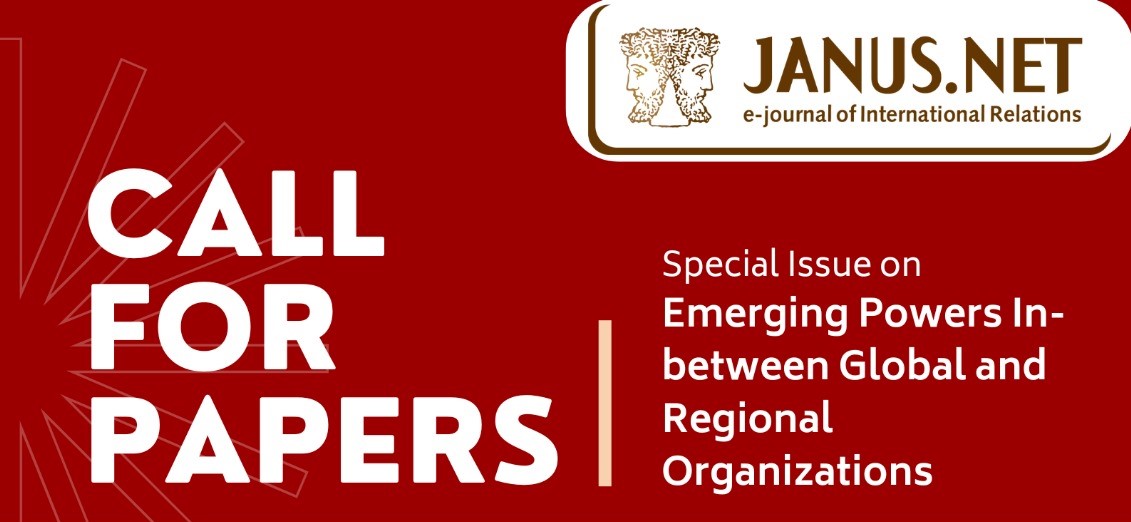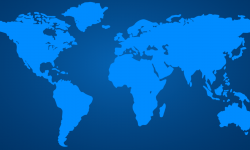
Journal: JANUS.NET, e-journal of International Relations, https://janusonline.autonoma.pt/en/
Main Question of the Special Issue: Why do emerging powers simultaneously prefer to be members of International (Global) and Regional Organizations?
Editors:
Associate Prof. Rahman DAĞ, Institute of Middle East and Islamic Countries, Marmara University, rahman.dag@marmara.edu.tr
Associate Prof. Özgür TÜFEKÇİ, Department of International Relations, Karadeniz Technical University, ozgurtufekci@ktu.edu.tr
Context of the Special Issue
Most of the states in the world are members of global institutions and also some of them have established their own regional institutions. Since the mid-Cold War years, there has been a tendency to form regional organizations in the name of regional economic development and particular identities (primarily regional). It is evident that most emerging powers or a block of states seeking to provide an alternative way of politics against the Western hegemony engage with regional organizations. They either form a regional organization or become a member of regional organizations. The problematic of this special issue is that suppose membership in a global institution is adequate for states to secure their national interests, especially economic and political interests, in cooperation with a global organization that most of the states are members of. Why are there alternative regional institutions? Of course, there might be different answers to that question. Some believe that the regionalization of international institutions does not contradict the global ones but actually completes and coordinates each other for specific cases, as global institutions can not cover every single issue which might have a regional origin. However, it is evident, once looked at their charters, that regional dimensions are at the core. Therefore, it can be considered as evidence for the belief that global institutions serve the global powers and do not take national interests or the security of middle or small powers into account. Either way, the proliferation of regional institutions is legitimized and logically acceptable in international world politics. As Panetta (2015: 81) suggests, “the creation of integrated regional areas seems to be the “postmodern passport to globalization”, especially from a politico-economic perspective.
From the early 19th century to the mid-Cold War era, leading powers’ security umbrella in established international systems was regarded as enough to ensure that no harm would come. If it did, the leading power of a given international system would prevent that harm from happening. In every international system, most states, especially newly established ones, understand that security provision depends on systemic structure. If they have acted according to what the system has led them to do, they will be better off than acting alone.
However, in current world politics, security is not just military protection but extended to numerous aspects, and there is no way that one or a set of states can provide such security. Therefore, regional integration, economic development, and political and military alliances have played a significant role in the state’s foreign policies. Even though these initiatives cannot be considered as regional institutions that would end up as an alternative international system, they can be regarded as a current one. The current international system is a “not yet fully established multi-polarity” as there is no consensus on which states constitute a polarity or how many polarities we have in world politics. It means that almost every single state in current world politics instrumentalizes international institutions to protect their national interest and security via bi-lateral agreements, regional organizations and international (global) institutions at the same time. While doing that, they place regional institutions at the centre, do not withdraw from the global institutions, and restrain themselves from signing bi-lateral agreements for specific issues.
Under these circumstances, this special issue intends to cover emerging power’s policies towards international (global) and regional organizations. Do emerging powers use regional organizations as leverage against the global order or institutions? Are they used as a collaborator between international and regional politics as a sort of check and balance? Or is this an indication of regionalization of world politics, and thus, emerging powers seek to establish their own sphere of influence? Relying on these questions, this special issue intends to cover emerging powers’ efforts to be part of a regional organization while not withdrawing from the global ones. There might be an issue of definition for what an emerging power is, but most of the literature agrees on an adequate number of candidates.
-Analysis on India, Russia, Brazil, Turkey, South Africa, Indonesia, Iran and possible emerging powers can be given space in this special issue. In addition to the case studies, the changing nature of state-international institution relations can be analyzed.
Timeline for Publication:
Deadline for Abstract Submission: 15 January 2025
Declaration of Accepted Abstract: 1 February 2025
Deadline for Full Paper Submission: 1 June 2025
Submission Guideline
For details, please check the journal website: https://janusonline.autonoma.pt/en/publication-guidelines/







